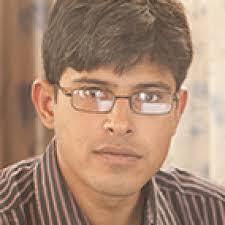Arjun Venkataraman
Arjun is a third generation entrepreneur. He sees his life shaped by three entrepreneurial experiences. His grandfather founded a tribal development non-profit. Growing up, Arjun saw the personal challenges of running a non-profit, the financial challenges the family faced, and the conflicts within the family due to his grandfather’s unconventional choice of work.
When Arjun was a teenager, his parents started a mushroom farm with a government subsidiary grant. Watching his parents struggle with establishing a business, Arjun learnt the skills of registering and running an enterprise, building a market, distribution, partnerships, and so on.
After graduating with a degree in engineering, Arjun, unsurprisingly, went on to join technology start-upAtlantis Computing, focusing on enterprisedata storage. Arjun helped take Atlantis from a small start-up in India to a million dollar company in Silicon Valley. Arjun looks back at his period establishing Atlantis as the period where he learnt the skills to articulate and pitch his work, hire a team and do fundraising.
While Arjun was in California, his step-father, Shubhranshu started a non-profit in India, CGNetSwara, that worked to get people from rural communities in the tribal state of Chhatisgarh to report news from the grassroots, and sent this out to a mailing list of social activists. Arjun had the opportunity to observe Shubhranshu moderating the platform and heard much of the content that was being reported by the rural communities. Arjun started feeling an increasing sense of frustration listening to these reported cases of human rights violations, and not being able to take any action on it. He felt that it was not enough to bring these grievances into mainstream news, and decided to move back to India, to not only scale CGNetSwara to other communities, but to build a system that would take action on the violations being reported from the rural communities. After spending time with local citizens’ groups from many areas of India, Nepal,Afghanistan, Indonesia, Cambodia and Myanmar he sees that there is more than enough work for his lifetime to bring isolated or conflict-ridden communities into a human communications network that uses technology cheaply and consciously to create social value.







